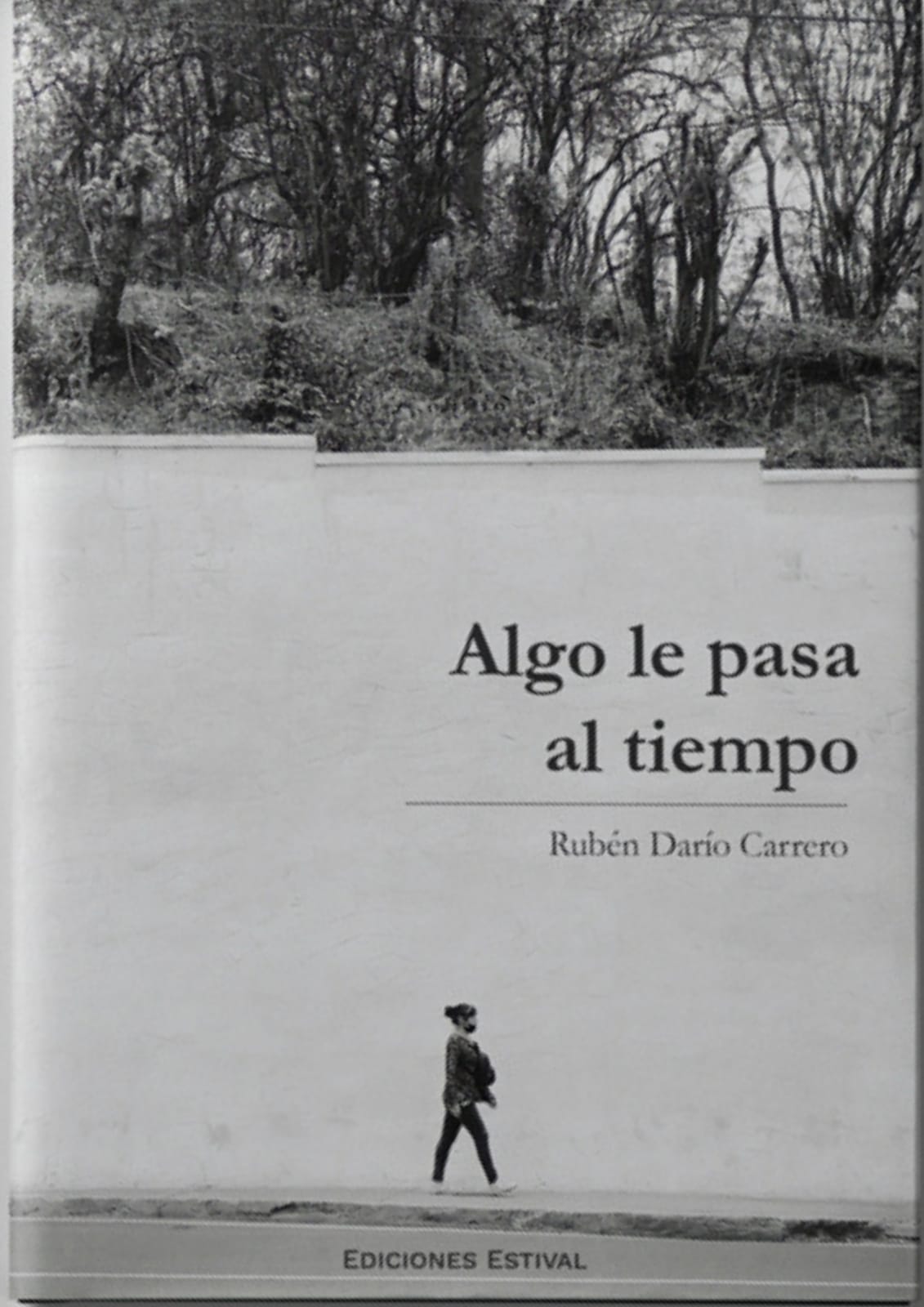It is not time. Time has not arrived.
It’s always untimely and too late, thought without a body, brute body.
[No es tiempo. No ha llegado el Tiempo.
Siempre es deshoras y demasiado tarde, pensamiento sin cuerpo, cuerpo bruto].
Octavio Paz
Maracay, Venezuela: Ediciones Estival. 2023. 40 pages.
 In his poem “El instante,” Borges asks himself, “Where will be the centuries?” and he lets this verse flow: “That is the routine of the clock,” and the Verb that knows about its conjugations allows words to move in time and get rid of oblivion. Time, that running knot that announces its arrival at every hour, at every instant, also knows about the Verb, the one that serves to tempt memory and stress the “cordial frequency” (the heart knows, anyway) of the person that assumes the echo of the image so as to build the moment when “shadows moo” or “men paint bisons.” The poem has gone a long way from Genesis to the Cave of Altamira under the “fifth hour of the sun”: time passes, slips, happens. The poet knows they inhabit centuries, the same centuries that have become a question in Borges’ mouth.
In his poem “El instante,” Borges asks himself, “Where will be the centuries?” and he lets this verse flow: “That is the routine of the clock,” and the Verb that knows about its conjugations allows words to move in time and get rid of oblivion. Time, that running knot that announces its arrival at every hour, at every instant, also knows about the Verb, the one that serves to tempt memory and stress the “cordial frequency” (the heart knows, anyway) of the person that assumes the echo of the image so as to build the moment when “shadows moo” or “men paint bisons.” The poem has gone a long way from Genesis to the Cave of Altamira under the “fifth hour of the sun”: time passes, slips, happens. The poet knows they inhabit centuries, the same centuries that have become a question in Borges’ mouth.
Venezuelan poet Rubén Darío Carrero is in no hurry. Therefore, he approaches that instant to affirm that “something happens to time” in Algo le pasa al tiempo (Estival Ediciones, 2023), his second book of poems, and from that beautiful prayer he builds this book in which he writes his most particular Universal History and begins to see that “I don’t feel the earth turning,” while Pythagoras or some lonely school teacher educates their students, those from the street that lives in him, that inhabits and mortifies him, from the windowsill on which he rests his elbows and contemplates the world and its mountain. Setting his eyes on the urban thickness, he murmurs: “the past has passed three times this afternoon / without Napoléon Bonaparte,” he lets the city noise be far away and continues: “words are very far / from what we see.”
“IN THIS BOOK THE LIMIT OF TIME IS IN ‘THE ROUTINE OF THE CLOCK,’ IN THE IMAGINARY CLOCK HANDS WHICH PREDESTINE THE FLIGHT OF THE PAST, THE FRACTURE OF THE FUTURE. THE PRESENT IS BUT AN INSTANT”
Man startles, he abandons the tableau of the outer landscape and listens to the beating on the wood: “someone’s at the door / and I think it is my destiny / or the past, again, with its horses.” The inevitable yesterday and the ungraspable afternoon that Borges himself mentions in his poem “El pasado.” The poem distends, understands itself in its very capacity to veil itself as a living body. To appraise his presence, Rubén Darío Carrero confesses: “I write this universal history / to remember the sublime.” The reader takes over the story, the characters, the family, even the poet who names himself on the last line of his journey, while the father travels infinitely.
Today is the moment, the other instant in this book, the other hour during the father’s farewell, the dying father allows the poet to make a self-portrait. Time goes on through Vargas street (a Venezuelan street, in Maracay), among hawkers, puddles and swear words. There is a today which signals a battered country that comes to life in the eye of the man who writes: “the words only come out of my hand / they come from that thing called absence.”
And he speaks of this home, of the sonority of his house, of the signs of the city, that short extension that time also reduces and turns into words, into the ostentation of silence, into loneliness and its related issues. And so—fleeting—time is movement, initiation: “the future will pass in a second / everything is always a beginning.” The man who writes does not falter: he knows that time changes, that something happens to it. In this book the limit of time is in “the routine of the clock,” in the imaginary clock hands which predestine the flight of the past, the fracture of the future. The present is but an instant.
Translated by Oscar Gamboa Duran





